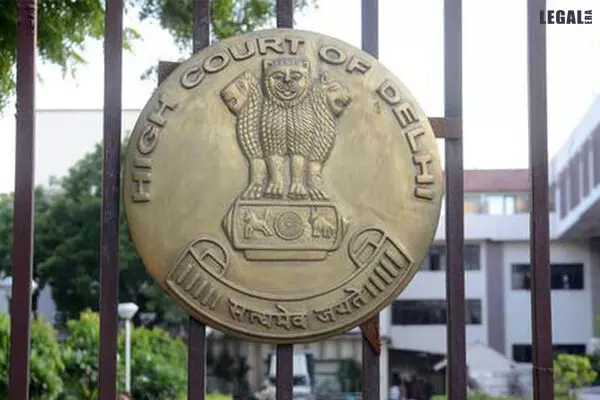- Home
- News
- Articles+
- Aerospace
- Artificial Intelligence
- Agriculture
- Alternate Dispute Resolution
- Arbitration & Mediation
- Banking and Finance
- Bankruptcy
- Book Review
- Bribery & Corruption
- Commercial Litigation
- Competition Law
- Conference Reports
- Consumer Products
- Contract
- Corporate Governance
- Corporate Law
- Covid-19
- Cryptocurrency
- Cybersecurity
- Data Protection
- Defence
- Digital Economy
- E-commerce
- Employment Law
- Energy and Natural Resources
- Entertainment and Sports Law
- Environmental Law
- Environmental, Social, and Governance
- Foreign Direct Investment
- Food and Beverage
- Gaming
- Health Care
- IBC Diaries
- In Focus
- Inclusion & Diversity
- Insurance Law
- Intellectual Property
- International Law
- IP & Tech Era
- Know the Law
- Labour Laws
- Law & Policy and Regulation
- Litigation
- Litigation Funding
- Manufacturing
- Mergers & Acquisitions
- NFTs
- Privacy
- Private Equity
- Project Finance
- Real Estate
- Risk and Compliance
- Student Corner
- Take On Board
- Tax
- Technology Media and Telecom
- Tributes
- Viewpoint
- Zoom In
- Law Firms
- In-House
- Rankings
- E-Magazine
- Legal Era TV
- Events
- Middle East
- Africa
- News
- Articles
- Aerospace
- Artificial Intelligence
- Agriculture
- Alternate Dispute Resolution
- Arbitration & Mediation
- Banking and Finance
- Bankruptcy
- Book Review
- Bribery & Corruption
- Commercial Litigation
- Competition Law
- Conference Reports
- Consumer Products
- Contract
- Corporate Governance
- Corporate Law
- Covid-19
- Cryptocurrency
- Cybersecurity
- Data Protection
- Defence
- Digital Economy
- E-commerce
- Employment Law
- Energy and Natural Resources
- Entertainment and Sports Law
- Environmental Law
- Environmental, Social, and Governance
- Foreign Direct Investment
- Food and Beverage
- Gaming
- Health Care
- IBC Diaries
- In Focus
- Inclusion & Diversity
- Insurance Law
- Intellectual Property
- International Law
- IP & Tech Era
- Know the Law
- Labour Laws
- Law & Policy and Regulation
- Litigation
- Litigation Funding
- Manufacturing
- Mergers & Acquisitions
- NFTs
- Privacy
- Private Equity
- Project Finance
- Real Estate
- Risk and Compliance
- Student Corner
- Take On Board
- Tax
- Technology Media and Telecom
- Tributes
- Viewpoint
- Zoom In
- Law Firms
- In-House
- Rankings
- E-Magazine
- Legal Era TV
- Events
- Middle East
- Africa
Delhi High Court Deems GST Registration Cancellation Unsustainable For Non-Filing Of Reply

Delhi High Court Deems GST Registration Cancellation Unsustainable For Non-Filing Of Reply
The Delhi High Court has ruled that cancelling GST registration solely due to non-filing of a reply is unsustainable.
The bench, comprising Justices Sanjeev Sachdeva and Ravinder Dudeja, has noted that the matter should be sent back to the proper officer for re-adjudication.
The petitioner/assessee has contested the decision whereby the Show Cause Notice suggesting a demand of Rs. 7,56,66,476 against the petitioner was resolved, and a demand, including a penalty, was imposed on the petitioner. The order was issued under Section 73 of the Central Goods and Services Tax Act, 2017.
According to the Show Cause Notice, the Department has categorized the alleged discrepancies into distinct sections, namely, declaration of output tax, excessive claim of input tax credit (ITC), and ITC claimed from cancelled dealers, return defaulters, and tax non-payers.
The proper officer expressed the view that, despite offering another opportunity, neither an online response has been submitted nor has the petitioner appeared either in person or through an authorized representative.
The petitioner argued that their GST registration had been cancelled retrospectively, with effect from July 26, 2017.
The Department argued that if the registration is cancelled retrospectively, the taxpayer loses access to the portal.
The court acknowledged the validity of the petitioner's argument that they were not served with the contested Show Cause Notice and the subsequent order issued following the cancellation of registration.
The court ruled that the petitioner must submit a response to the Show Cause Notice within 30 days. Subsequently, the proper officer will re-examine the notice, providing an opportunity for a personal hearing, and issue a new detailed order in compliance with the law within the timeframe stipulated under Section 75(3) of the GST Act.



